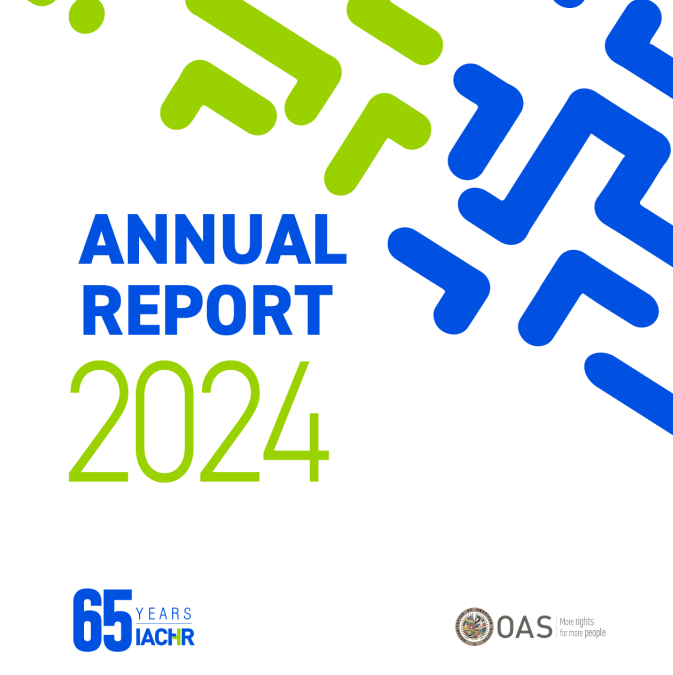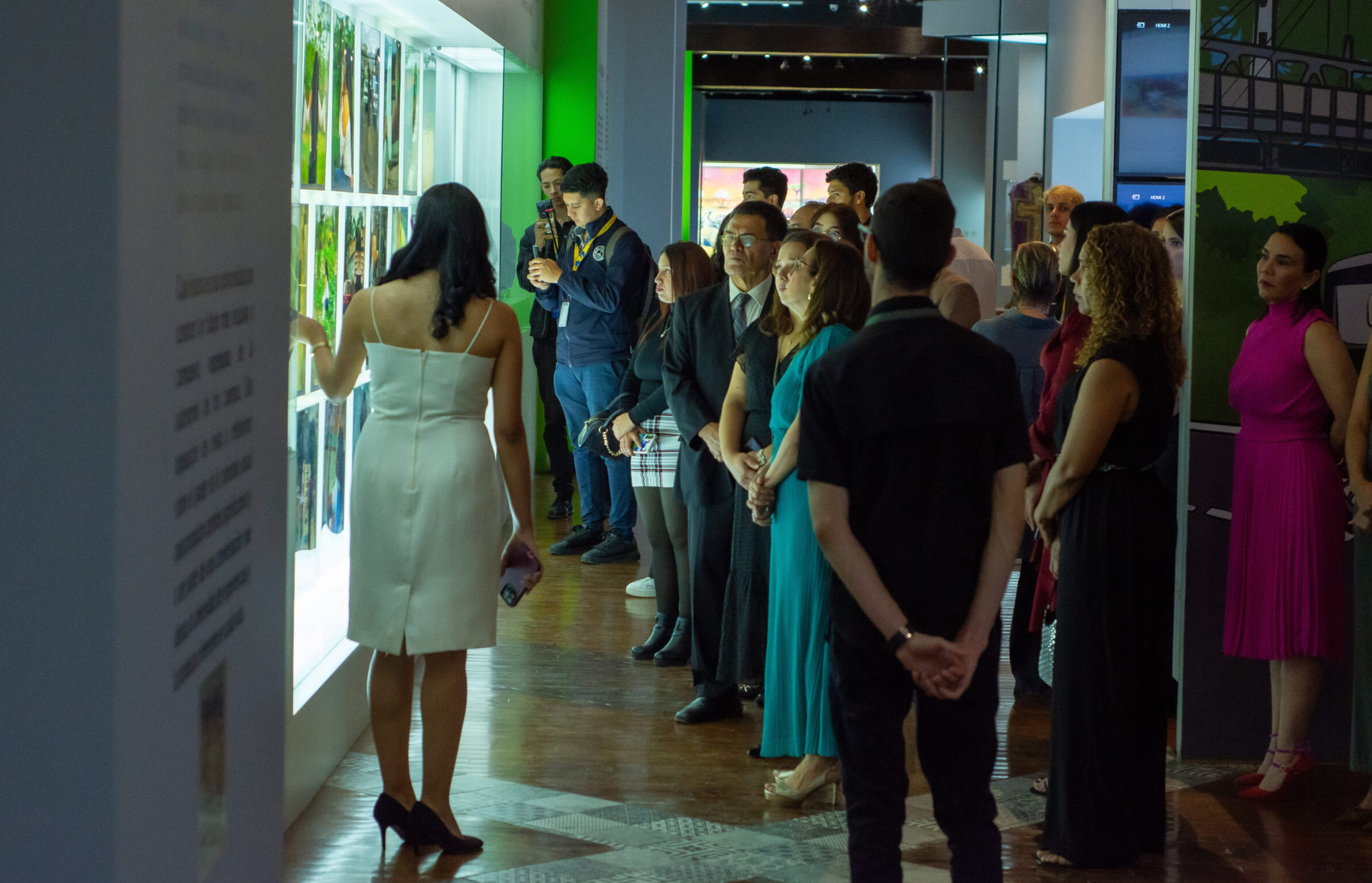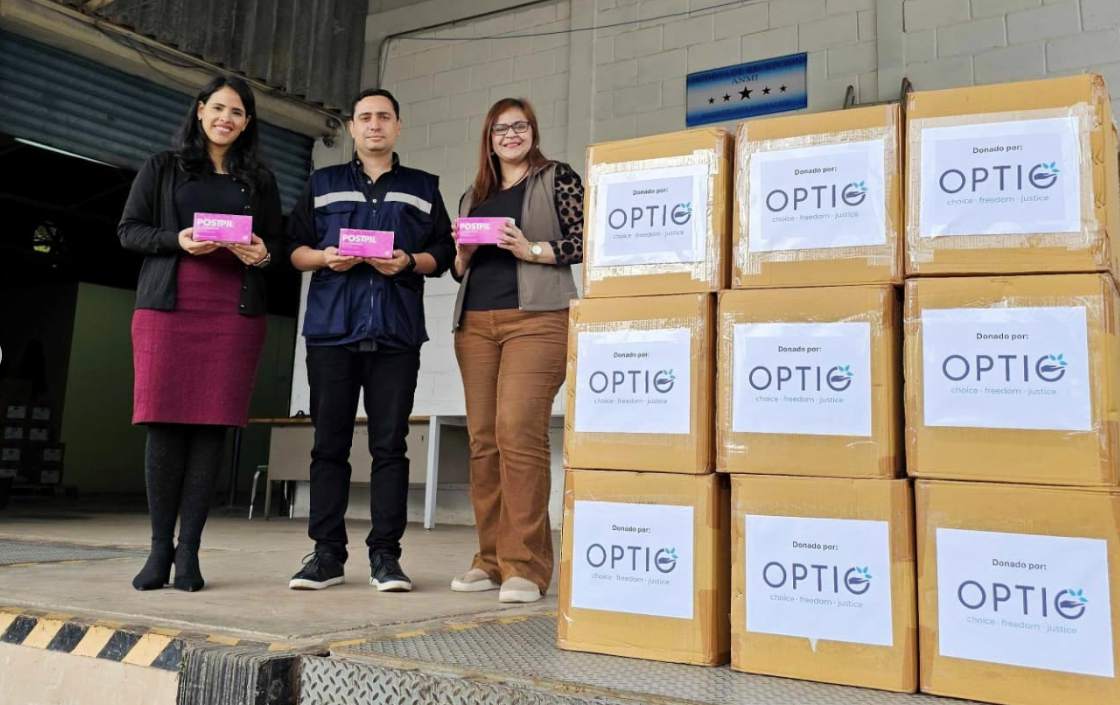Optio’s Legal Team Wins Landmark Abortion Case In Honduras
On May 7th, 11 years after being prosecuted, a Criminal Court in Honduras found Victoria* “not guilty” of the criminal abortion charges made against her. Optio’s legal team and Somos Muchas, our local Honduran partner, have been representing Victoria pro bono for the past three years. This legal decision was a victory for both Victoria and for our ongoing fight to liberalize the Honduran law that prohibits abortion even if the mother’s life is in danger.
In 2010, Victoria* suffered a miscarriage at home and was rushed to the hospital. She didn’t know she was pregnant at the time. When she arrived, the hospital staff reported her to the authorities and she was subsequently charged by the Public Prosecutor’s Office with the abortion “of a 20-week-old unborn.” She was immediately handcuffed to her hospital bed, her wrists purple from the tight restraints. She spent almost a week like this, detained in her own hospital bed while recovering from the miscarriage.
“I was afraid that they might kill me, based on the way they treated me. They accused me, they called the police, and they called me a slut. I insisted that I hadn’t done anything wrong. I didn’t even know [about the pregnancy] because I have problems with my period. Sometimes I expect it on a certain date and it comes on another,” said Victoria.
In a study that Optio and Somos Muchas produced three years ago, we found that in 64% of cases in which women were criminalized for abortion between 2006 and 2018, health care workers were responsible for turning women in to the police. It was during this research that we found Victoria’s case and decided to represent her.
Over the past three years, Optio and Somos Muchas have provided financial, emotional, and legal support to Victoria. According to Merary Avila, one of the lawyers on our legal team, “We need to represent these defendants in order to put names, faces, and real stories to all the statistics in our report. We want to shine a spotlight on the discrimination and injustices suffered by these women, and see how we can obtain reparations for them.”
Victoria has now attended many of Somos Muchas’s events to learn more about sexual and reproductive health. At one of these events, she was given a green scarf that says “Together, brave and free.” She used to hold the scarf close whenever her legal troubles gave her headaches or made her feel anxious.
Grecia Lozano, Optio’s Director of Legal Strategy, believes that women criminalized for abortion pay a high emotional and financial price. This only happens to the poorest women, because “a wealthy woman wouldn’t have gone to a public hospital in the first place and, secondly, she’d have the money to mount a rigorous legal defense if charged.”
During Victoria’s public trial in April this year, the prosecutor requested an acquittal due to a lack of evidence, and the court agreed. Her trial took 11 years because of flaws in the Honduran justice system. According to Lozano, “From a legal point of view, this is inconceivable. It’s a violation of due process because even if she had been convicted back then, she’d be free by now because the maximum sentence for this is six years.”
Our legal team will follow up with a civil lawsuit later this year, charging the Government for violations of human rights and international treaties. “I think these are important cases in that they expose breaches of doctor-patient confidentiality and the serious human rights violations that are sometimes committed when women seek medical treatment,” said Avila.
After the court declared her “not guilty” by unanimous vote, Victoria received a video call from her lawyers. She burst into tears.
“Victoria, you’re free,” said Avila.
“Yes,” said Victoria, as she wiped her eyes, “Together, brave and free.”
___________________________________________
This story was translated and adapted from an article published by Vienna Herrera on the news website Contra Corriente. Please see the full version here.
* The defendant asked to remain anonymous in the interview to avoid further stigmatization and discrimination.
IACHR Report Highlights Urgent Sexual and Reproductive Rights Issues in Latin America
The Inter-American Commission on Human Rights’ latest Annual Report highlights key human rights trends and challenges across Latin America—two of which Optio is actively working to address: access to contraception and media harassment of women and girls accused of...
“Entre mis Cicatrices” Exhibition Highlights Plight of Honduran Women in Restrictive Legal Environment
On February 27, 2025, the Museum for National Identity (MIN) and Optio inaugurated the powerful photography exhibition “Entre mis Cicatrices” , shedding light on the resilience of Honduran women who have faced criminalization following obstetric emergencies. The...
Optio Donates Emergency Contraception to the Honduran Ministry of Health on International Human Rights Day
In commemoration of International Human Rights Day, Optio reaffirmed its commitment to advancing sexual and reproductive rights in Honduras by donating 10,000 tablets of Postpil (emergency contraception) to the Honduran Ministry of Health. The donation will be...



